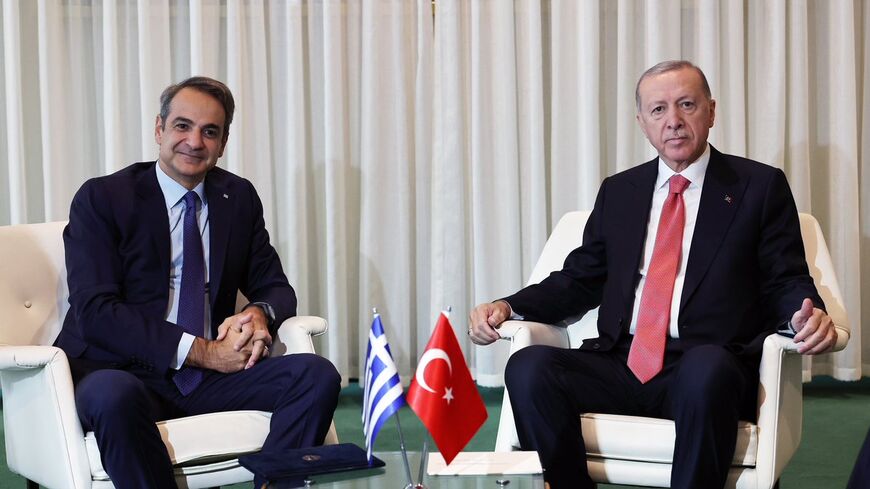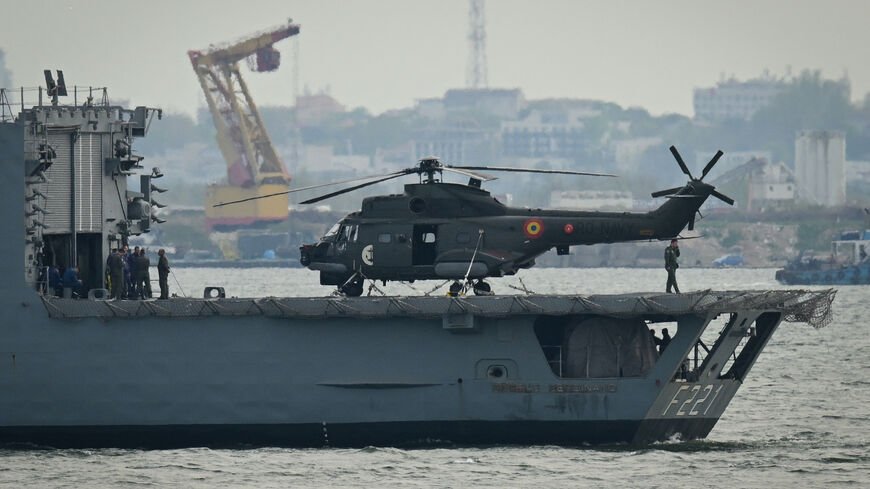Turkey, Greece reach understanding on contentious Aegean marine park plan
The announcement comes a day after Turkish-Greek leadership summit in Ankara between Recep Tayyip Erdogan and Kyriakos Mitsotakis.

ANKARA — Turkish Foreign Minister Hakan Fidan said Tuesday that Turkey and Greece reached an understanding in principle over a contentious Greek plan to set up a marine park in the Aegean Sea where the two countries have historical territorial conflicts.
"We have put our concerns concerning the marine park on record," Fidan said during a televised press conference with his Austrian counterpart, Alexander Schallenberg, in Ankara. “An understanding in principle has been reached for both sides to avoid unilateral steps. Both sides are in agreement that no unilateral steps should be taken and that the existing problems should be discussed no matter how difficult they are.”
Reached by Al-Monitor, the Greek Foreign Ministry was not immediately available for comment.
Fidan's announcement followed talks between Turkish President Recep Tayyip Erdogan and Greek Prime Minister Kyriakos Mitsotakis in Ankara on Monday. Fidan and his Greek counterpart, George Gerapetritis, were also present at the summit.
Background: In April, Mitsotakis unveiled a plan to establish two national marine parks, one in the Ionian Sea and one in the Aegean, aimed at preventing marine pollution and preserving biodiversity.
Coming only four months after Erdogan’s landmark visit to Athens, the Aegean marine park plan has led to a fresh strain amid a rapprochement between the two neighbors. Turkey regards the Aegean marine park plan as an attempt by Greece to expand its territorial waters in that region.
Turkey's foreign and defense ministries issued stern warnings to Athens against the plan. The territorial conflicts in the Aegean have brought the two NATO allies to the brink of war a few times over the past decades.
The plan aims “to increase the size of our marine protected areas by 80% and cover about 1/3 of our territorial marine waters,” Mitsotakis had said in April during the international environmental conference for ocean protection in Athens.
Speaking on Tuesday, Fidan said Turkey does not view the plan as an "innocent environmental project," but rather something that if advanced would breach his country’s "red line," particularly concerning the continental shelf dispute between the two neighbors.
Tensions arising from Turkish hydrocarbon exploration activities in the disputed waters and the militarization of the Dodecanese islands, where Greece is permitted to maintain a limited military presence under international treaties, have led to a series of escalations including naval standoffs between the two NATO allies from 2018 to 2022.
Those relations saw a thaw following the twin earthquakes that struck Turkey's southeast and claimed more than 55,000 lives on Feb. 6, 2023. The humanitarian assistance offered by Athens at the time helped ease tensions. In November 2023, the Turkish and Greek defense ministries reinstated a series of de-escalation measures between the two countries' armies as part of the resumed confidence-building negotiations that had been halted in 2022.
Greece asserts that it has the right to extend its territorial waters to 12 nautical miles and expand its exclusive economic zone in the Aegean, citing the UN Convention on the Law of the Sea. Turkey, not a signatory to the convention, staunchly opposes the idea, arguing that such action would impede its access to international waters. In the 1990s, the Turkish Parliament passed a bill declaring Greece's extension of its territorial waters beyond six nautical miles into the sea an act of war.






